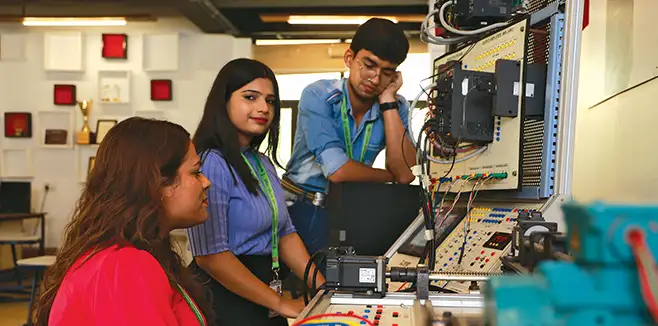- Rahul Sharma, Design Engineer, Mentor Graphics at annual package of 20 Lakhs.
- Dhruv Sharma, Application Engineer, Cadence with annual package of 12 Lakhs
- Raghav Rastogi, Design Engineer , Truechip Solutions, with annual package of 11 Lakhs
- Vansh Tara, Lido Learning with annual package of 10 Lakhs
Graduates have also got placements in various organizations including Hewlett Packard, Agilent, Cadence, Synopsis, Truechip Solutions, Texas Instruments, Simmtronics, Qualcomm, Cognizant, ST-Microelectronics, MIDAS Communication, IBM/Microsoft, Nokia Siemen, Accenture, Ericsson, Green India, Arnav Technology, Cnif, Outflare, Maintec, Micromax, HCL CDC, Xperia, Indian Navy, Josh Technology, Grey Meter, EXL, CMC Limited etc.
Apart from Placements, many graduates opt for higher education through GATE, NET, GRE, TOEFL, IELTS etc and are successfully placed Nationally and Internationally.



 0
0 























